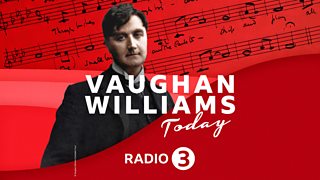
Tributes
Donald explores the theories around Purcell’s death at the age of just 36, and examines the various tributes made to the composer after his passing.
Donald explores the theories around Purcell’s death at the age of just 36, and examines the various tributes made to the composer after his passing.
Henry Purcell was the most important English composer of the era, described as the "Orpheus Britannicus" for his ability to combine Baroque counterpoint with dramatic settings of English words. He composed music for the church, the royal court, the theatre and for England’s newly emerging concert scene, with an intelligence and creativity that marked him out as one of the most original composers in all of Europe. More than anything, though, he composed music for London – the city where he lived all of his short life. Over the course of this week, Donald Macleod explores the city during Purcell’s lifetime and London’s effect on a man who lays claim to being England’s greatest composer. During Purcell’s childhood, it was a city reeling from civil war, the disastrous spread of disease, and the destruction wreaked by the Great Fire. We’ll explore London’s churches, and music Purcell wrote for them, especially Westminster Abbey, where Purcell was organist, the state of London’s theatre scene in Purcell’s day, and the changing demands for music from the various monarchs of the composer’s lifetime. Finally, Donald explores London’s response to the shock of Purcell’s death in his mid-30s, and the tributes paid to the composer from his own Fairest Isle.
In Friday’s programme, Donald explores the theories around Purcell’s early death at the age of just 36, shortly after he had survived a deadly bout of smallpox that had ravaged London. He also examines the various tributes made to the composer from the city where he had lived all his life after his passing, and the influence that Purcell’s music has had since his death more than 325 years ago.
When I am laid in earth from Dido and Aeneas
Joyce DiDonato, mezzo (Dido)
Il Pomo d'Oro
Maxim Emelyanychev, conductor
Trumpet Sonata in D Major, Z 850
Alison Balsom, trumpet
Balsom Ensemble
Burial Service, Z 58c
Laurence Cummings, organ
Oxford Camerata
Jeremy Summerly, dircetor
‘From Rosy Bow’rs’ from Don Quixote
Emma Kirkby, soprano
Academy of Ancient Music
Christopher Hogwood, conductor
Oedipus: incidental music, Z 583 (No 2, Music for a While (Arr B. Britten)
Iestyn Davies, countertenor
Joseph Middleton, piano
Produced by Sam Phillips for ������̳ Audio Wales & West
To listen on most smart speakers, just say: "Ask ������̳ Sounds to play Composer of the Week."
On radio
More episodes
Next
You are at the last episode
Broadcast
- Friday 16:00������̳ Radio 3
Vaughan Williams Today
Beethoven Unleashed – the box set
What was really wrong with Beethoven?
Composers A to Z
Who knew? Five eye-opening stories from Composer of the Week
Five reasons why we love Parry's Jerusalem
What is the strange power of Jerusalem which makes strong men weep?
A man out of time – why Parry's music and ideas were at odds with his image...
The composer of Jerusalem was very far from the conservative figure his image suggests.
Composer Help Page
Find resources and contacts for composers from within the classical music industry.





